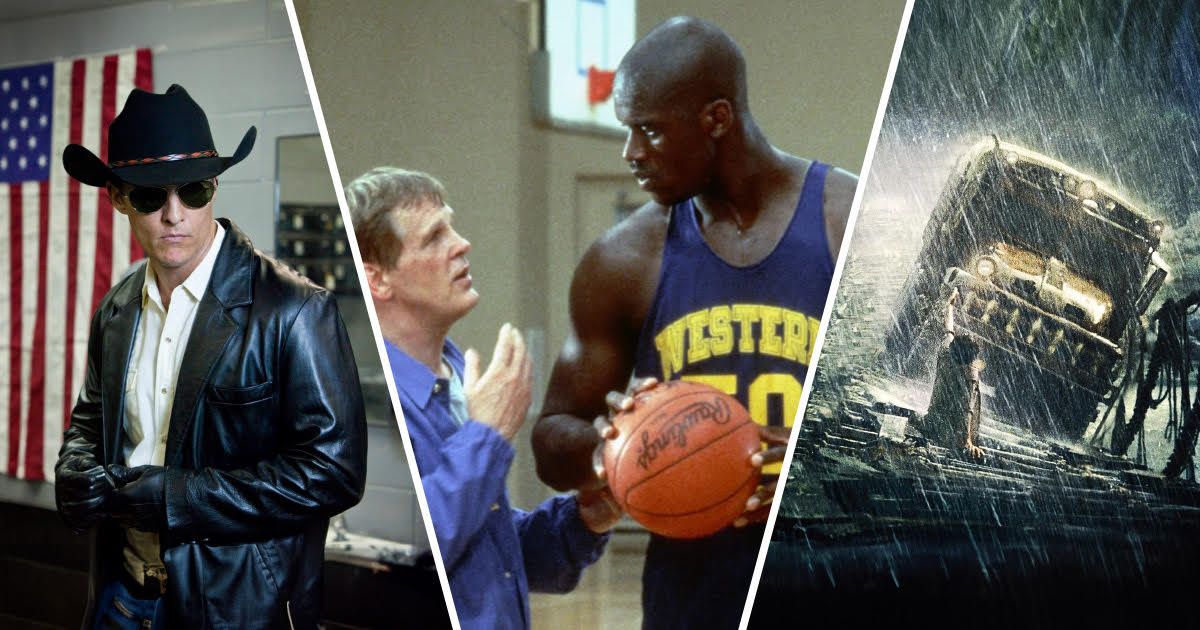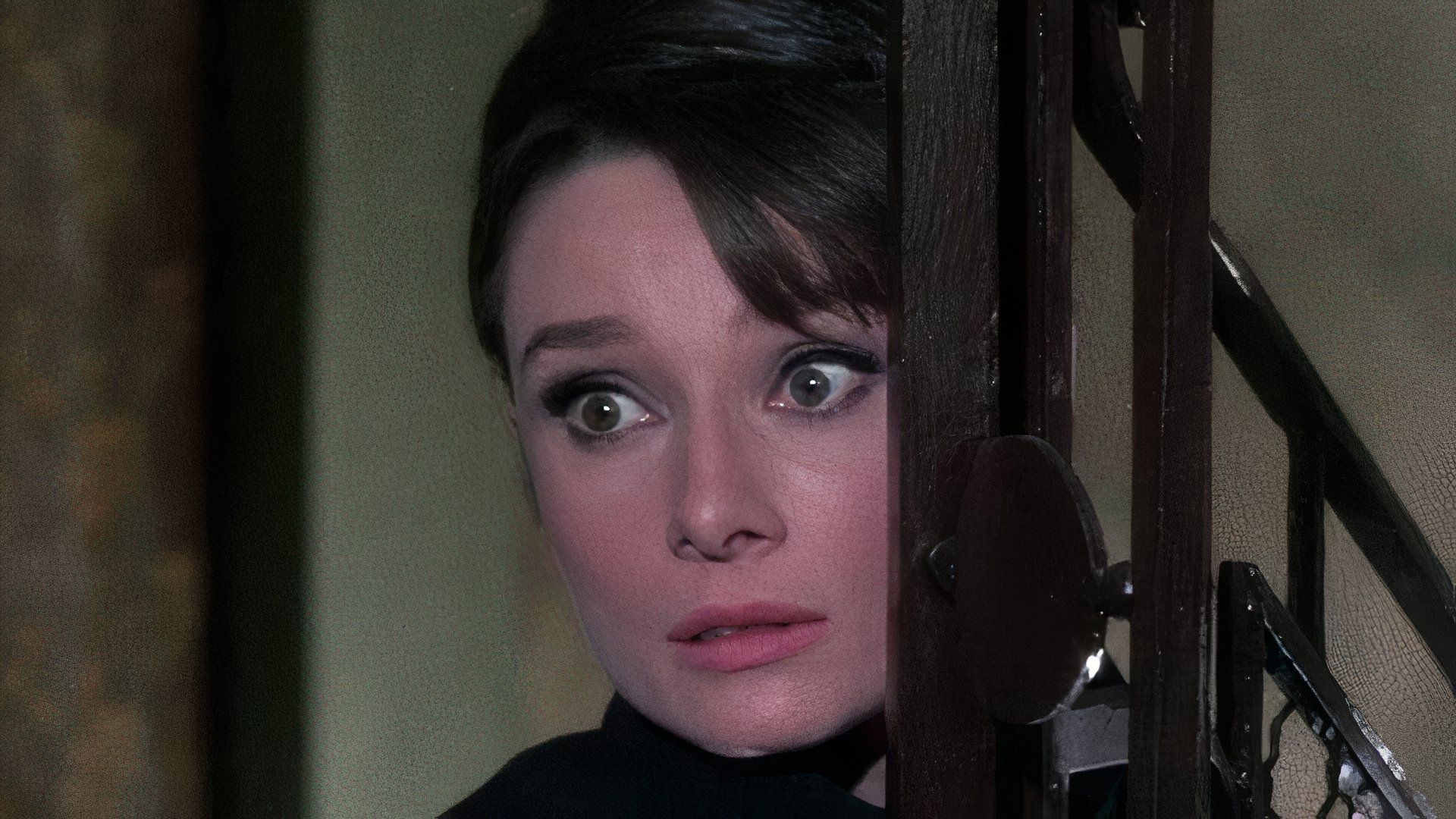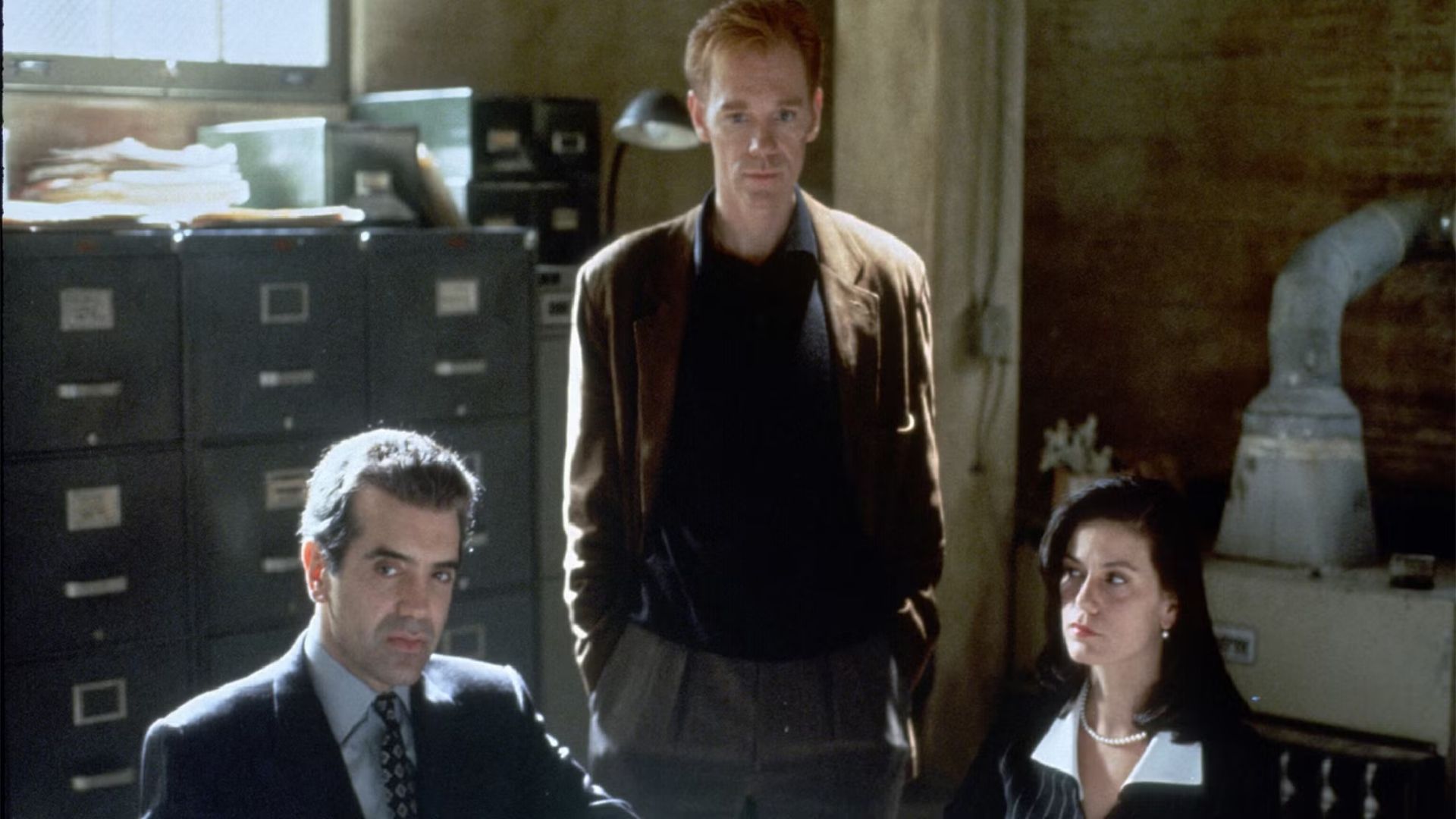Known to many for his role as Horatio Caine on CIS: Miami from 2002 to 2012, David Caruso first gained notoriety in the police procedural drama NYPD Blue. The actor chose to depart from the latter of these products in 1994 to pursue a career in film. During the brief erotic thriller craze brought about by the success of Paul Verhoeven’s Basic Instinct, Caruso took a role in Jade. A thriller, released in 1995 and directed by William Friedkin, also featured a stacked cast that included Linda Fiorentino, Chazz Palminteri, Michael Bien, and Richard Crenna.
To say Jade was not well received by critics and audiences would be an understatement. Jade bombed at the box office and was subject to scathing reviews from many critics. Like other erotic thrillers from the time period, such as Sliver, Body of Evidence, and Color of Night, the overall reception was mostly negative, despite these films all having style and intricate mysteries that were reminiscent of the Italian Giallo craze of the 1960s and ’70s. Jade deserves more praise than punishment, as it saw Friedkin recapture some of the intrigue and style that were prominent in The French Connection and Cruising.
A Mystery Unfolding Among the Social Elite
Jade thrives on stylish and erotic content and a murder mystery that takes place among the upper classes. The aspect of the degeneration and corrupt nature of the social elite was prominent in many Italian Giallo films, and itself was a subversive way of ridiculing the aristocracy, which had been in decline in the 1960s following the abolition of the monarchy in 1946. Friedkin embraces this aspect in Jade with the murder of prominent businessman Kyle Medford (Rom Ulstad). ADA David Corelli (David Caruso) is called to investigate the crime, and he soon finds himself caught in a web of intrigue and blackmail.
Much has been made about Caruso’s failed attempt at a film career. Playing the role of Corelli is something that’s not too far removed from the actor’s stint as a detective in NYPD Blue, and he manages to portray the role perfectly. The rest of the cast bolsters the erotic and seedier nature of Jade, most notably Linda Fiorentino as Psychiatrist Katrina Gavin and her husband, high-profile defense attorney Matt Gavin (Chazz Palminteri.) Rounding out the intrigue and corruption of the murder mystery in Jade is Gov. Lew Edwards (Richard Crenna), reportedly in the midst of a blackmail scandal after pictures of him and a prostitute are discovered at a private residence owned by Medford.
The sexual practices of Medford and those associated with him build into the intrigue of the mystery that persists in Jade, something that Friedkin is well-versed in. Every character in Corelli’s investigation is a viable suspect, and no one is above suspicion. The crux of the mystery is Jade, the promiscuous sex worker and alter-ego of Katrina, who is reminiscent of Catherine Deneuve in Belle de Jour, a means by which someone from the upper classes and trapped in a mundane marriage has the means to escape through sexual trysts and escapades. The film’s tagline, “some fantasies go too far,” reflects the lengths to which Katrina is willing to go as Jade to fulfill her hidden desires.

Related
William Friedkin’s 10 Most Underrated Movies, Ranked
Many of William Friedkin’s cinematic gems have gone under the radar with audiences.
Substance and Style From One of the Most Talented Directors
Some critics have accused the erotic thriller genre of having sexuality and style but very little in the way of substance, a criticism leveled towards many Giallo films as well. Jade indeed thrives on its sexually explicit imagery, but it should be noted that Friedkin finds a way to establish a complex web of intrigue to draw the audience into the narrative and, for lack of a better term, keep them guessing.
Fans of Friedkin’s work will certainly notice something in Jade that was also featured in his 1971 crime thriller, The French Connection, a car chase that takes many twists and turns and provides excitement for the audience. With Jade being set in San Francisco and multiple elements of the plot surrounding the area of Chinatown (a nod to the Roman Polanski film of the same name), Friedkin injects a car chase that runs through a parade in the middle of the city and certainly goes up against expectations. Some critics were quick to point out that the car chase is simply a means to sharpen the excitement of a narrative that was dismissed as being paper-thin, but the unknown assailant that Corelli finds himself in pursuit of does the precise opposite. It builds upon the intrigue of the mystery and furthers the underlying theme of every character in Jade being a probable suspect.
The overriding tone of Jade, one of mystery and sexuality, is reminiscent of another one of Friedkin’s films, Cruising, in which a murder mystery and sadomasochism were integral to the narrative. All of these aspects, combined with its deplorable and underhanded characters, make Jade a memorable crime thriller that takes its cues from other films but simultaneously stands out on its own.
Unlike modern attempts at the Giallo formula, such as The Strange Colour of Your Body’s Tears, which emphasizes Easter eggs and visuals, Jade doesn’t sacrifice tone and plot, which are essential for any murder mystery to engage the audience. The erotic thriller craze of the 1990s, however brief it might have been, was far closer to the Giallo films of the 1960s and 70s than some modern attempts have been. Should the erotic thriller ever make a notable mainstream return, Jade could easily serve as an interesting case study in tying modern and classic elements together.

Related
11 Psychological Thrillers on Prime Worth Checking Out
What better way to celebrate spooky season than to dive into some of the most celebrated psychological thrillers found on Prime Video?
Long Overdue Praise for a Box Office Bomb
Looking back at the short-lived history of the erotic thriller, there have always been low box office records and negative reception among both critics and audiences. In retrospect, this seems unfair. Many of these films, including Jade, found a way to incorporate style, substance, and sexuality while also containing a discernible level of ambition to do something that many audiences at the time might not have been expecting. Poor reception and box office are never a concrete barometer of quality. Jade should be praised as a film that saw a director and cast strive to go against the grain and deliver a product that would entertain audiences and engage their speculation. Rent on Apple TV.

